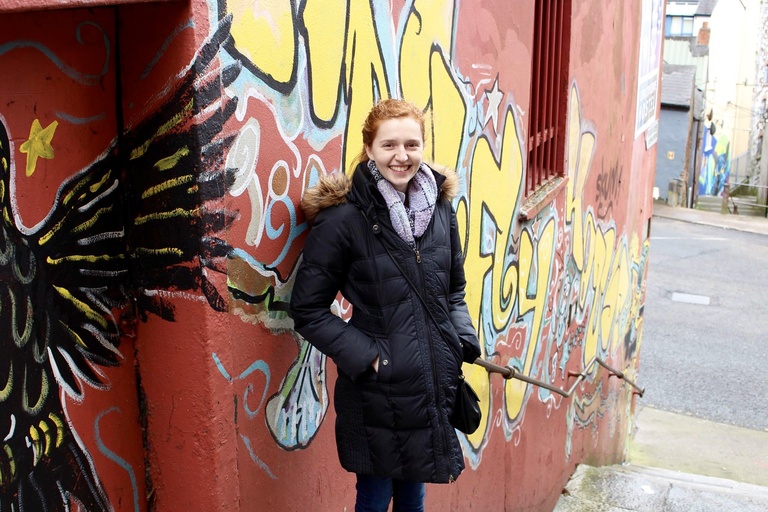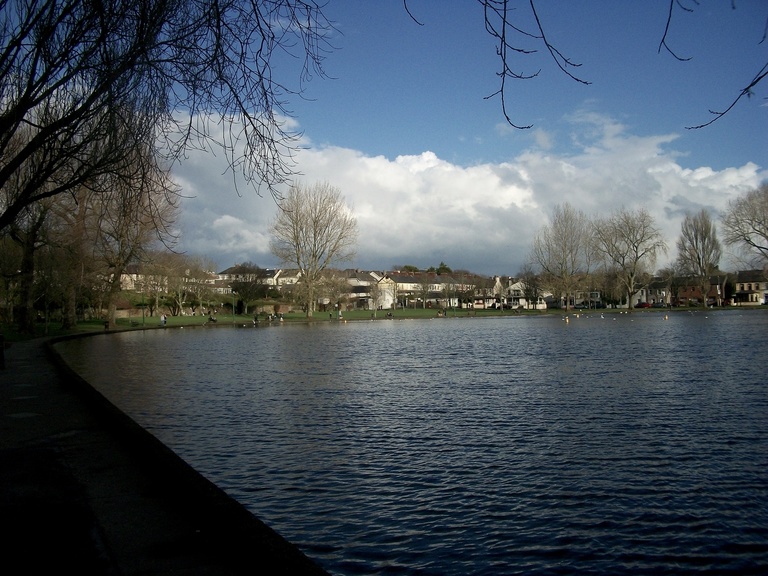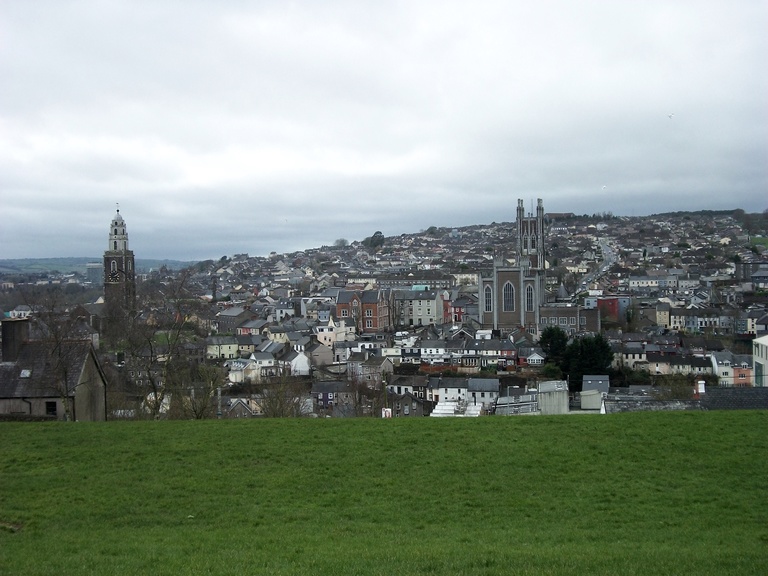
By Kelsey O'Donnell*
Before jetting off to Ireland, I, equal parts nervous and excited, read loads of articles, books, and travel guides to learn everything I could about the place I would be living for a year. Besides learning about all the places I wanted to visit while in Cork, I was also very interested in knowing more about the accent.
Just like the United States, there is not just one single Irish accent, and I read that the Cork accent was one of the most difficult to understand. Personally I love listening to different accents. Accents make people unique and very interesting to talk to. It also reminds me that I have an accent too, although it may not seem like it to me! In fact, my French friend, Mary, has even told me that she finds the Midwestern American accent a bit difficult to understand, because she learned English from British teachers, not American ones.
When I arrived in Cork back in August, my first experience with the Cork accent was in a taxi ride to my apartment. It could have been partially due to an overnight flight and long bus ride from Dublin with little sleep, but I hardly understood a word my taxi driver said. People in Ireland are the friendliest people I have ever met and taxi drivers are (generally) no exception, so they like to talk your ear off. I really didn’t have to say much, but nod and smile, which is all I could have done anyway not truly knowing what he was talking about. In my experiences after this, understanding the accent does get better and this man had a thicker accent than most. Getting used to the singsong lilt that is the Cork accent and picking up on the different jargon takes time. I have also realized that the professors and many of the students at the university do not have as thick of an accent. I have never had trouble understanding my professors in lectures and only the occasional misunderstanding with students. Instead I am able to just enjoy being surrounded by different voices than my own- not just Irish, but German, Dutch, French, Italian, and Spanish accents as well!

What exactly are the differences between a Midwestern and Cork accent? I won’t get into the technical linguistics of it, but the Cork accent has a very musical intonation. They also have many different pronunciations. For example, they don’t pronounce the “th” sound here, so “thirty three” sounds more like “turty tree”. They pronounce “film” as “fillum”, which I have never understood, but that is what makes them unique! Instead of “you” they will say “ye” or “yous” (Do ye know what I mean?). The Irish will call their mums back home, not their moms or even better, they will go home to their mammy, not their mommy. Side note, an interesting cultural difference is that the Irish students here all go home on the weekends. Ireland is smaller than Iowa, so they are just a quick train ride away from their homes where they can eat their mum’s food and do some laundry. Of course, Iowa students go home some weekends, but here, they go home EVERY weekend. Many of them also keep jobs in their hometowns just to work on the weekends.
During the international student orientation at University College Cork back in August, the student leader informed us of a few words used here that either we had never heard before or that meant something entirely different to Americans. First, it’s common to say, “What’s the craic?” or “Let’s go have some craic”. Basically, craic means something like fun, or having a great time. Second, when someone says you are haunted, it does not mean anything remotely spooky, it means you are lucky! Third, the Irish add “like” after everything and in a different way than we would in America. One time I asked someone where they were from and their response was “I’m from Cork like.” Fourth, class is used to say something or someone is brilliant or really good at something. They actually say module for the American definition of class. Fifth, they say lads to describe a group of guys or even sometimes to describe a mixed group, such as “do ye lads want to order a pizza?” There are so many differences that I could just go on and on: you “go for a pint” instead of a beer; you attend hen or stag parties, not bachelorette or bachelor parties; a line is a queue and an elevator is a lift; chips are crisps and fries are chips; scones are more like what Americans consider a biscuit, a biscuit is what we would call a cookie, and a cookie is very specifically a soft, “American style cookie” (which is how it’s labeled in stores sometimes!). I think the strangest phrase of all that I had to get used to was the way cashiers or store employees ask how they can help you. They say “Are you alright?” or “You alright there?” The first time I heard this, I was surprised and almost instinctively responded, “Yes I am just fine!” But I soon learned that they are not asking about your feelings, but rather if you need help finding anything or what your order is.

While all of what I’ve said above describes the Cork accent, some of it applies more broadly to the Irish accent. The Irish, however, do not like when you describe an “Irish accent” because they understand the subtle and distinctive features of each regional accent to be too different to group into such a heading. It is a bit more difficult for an outsider to understand all the subtle differences, but there are certainly several regional accents that are quite distinctive, including the Kerry, Dublin, Donegal, and Northern Ireland accents. I’ve experienced these accents myself through traveling around the country. There are 32 counties in Ireland and it can be argued that each county has their own accent, and this is in a country smaller than Iowa! It’s hard to describe the Donegal accent, but it has been voted the ‘sexiest’ Irish accent by readers of the Irish Independent. The accent you will hear in Northern Ireland, particularly Belfast, is very different than its Southern counterpart. Because of its history of Scottish settlers, the accent today is a mix between an Irish and Scottish accent, with perhaps a bit of the English accent thrown in. In my opinion, the accent in Belfast is the hardest to understand.
All in all, it’s great fun to be surrounded by the Irish accent every day and to confuse people with my “goofy American phrases."
*Kelsey O’Donnell is a junior majoring in international studies and anthropology at the University of Iowa. The Sergeant Bluff, Iowa, native is spending the academic year abroad on the Iowa Regents Semester in Ireland program in Cork, Ireland.